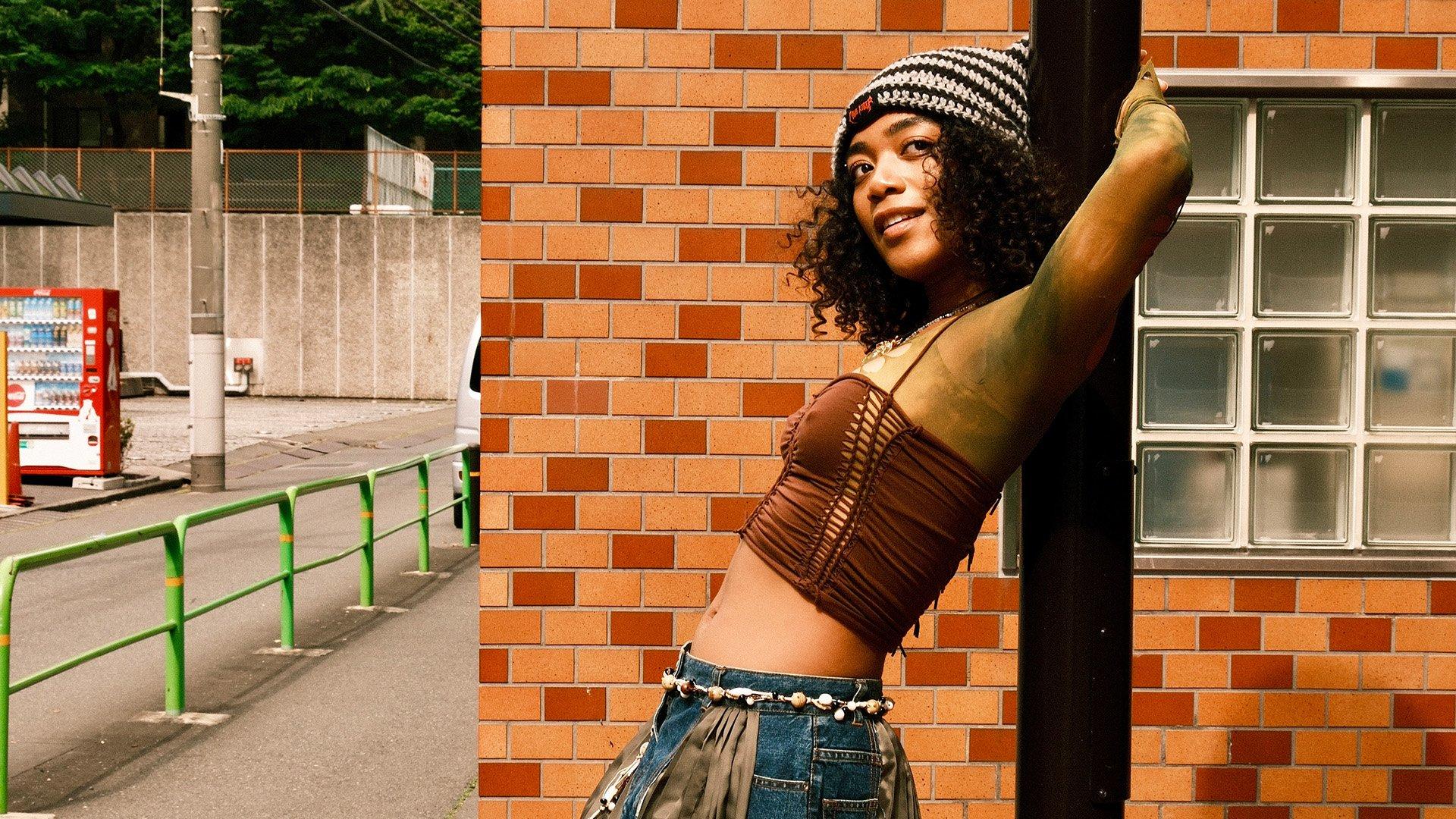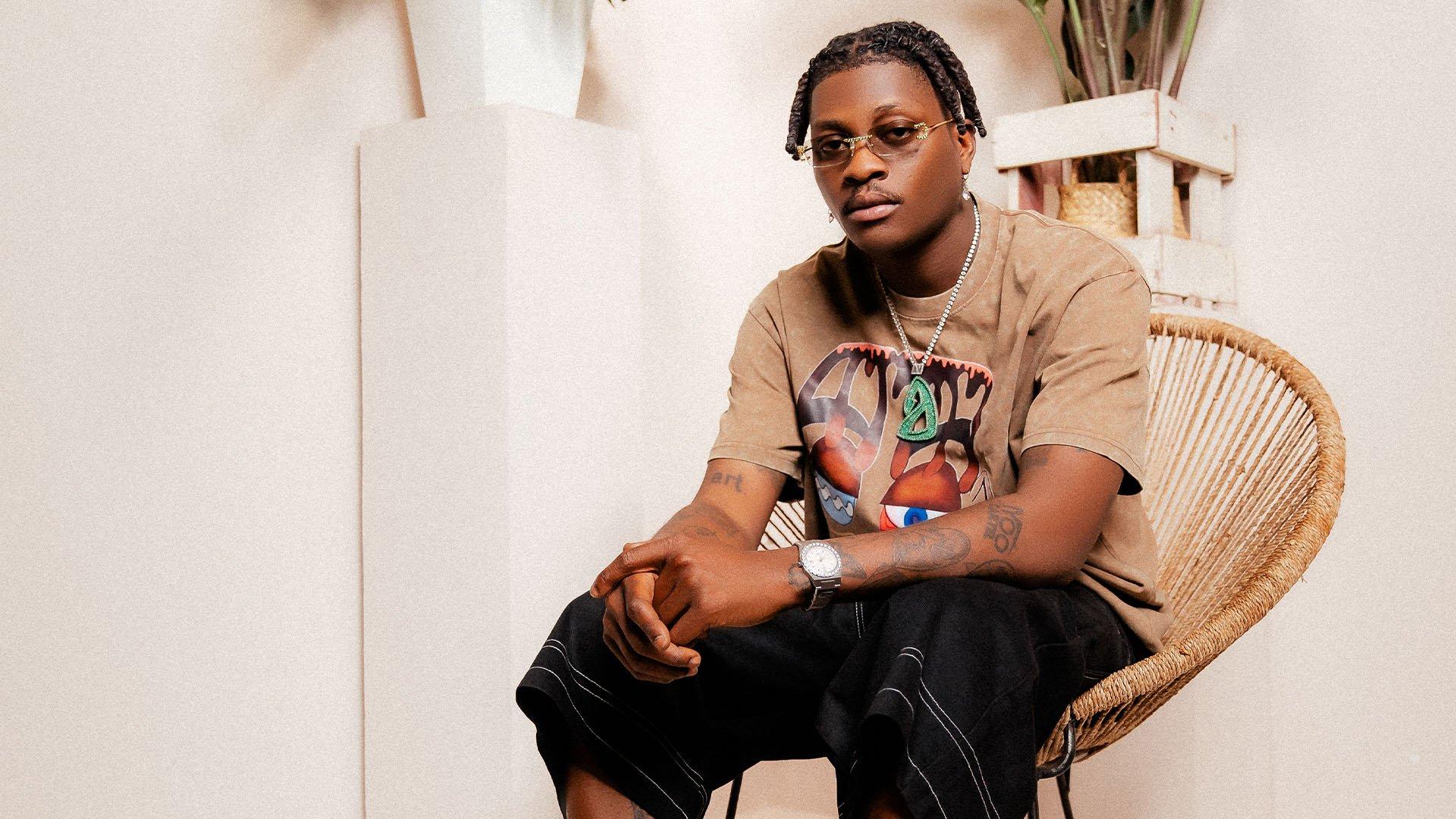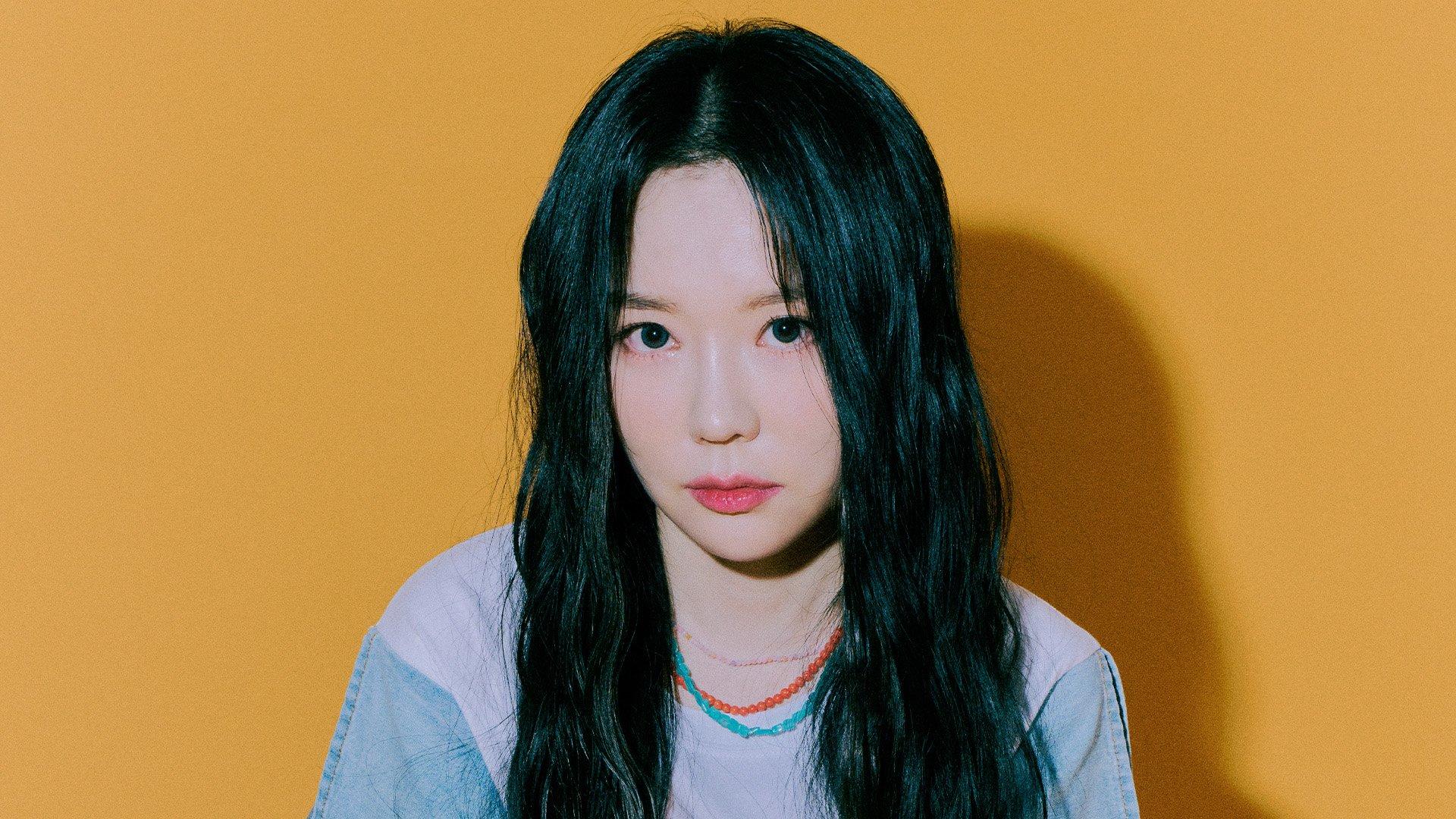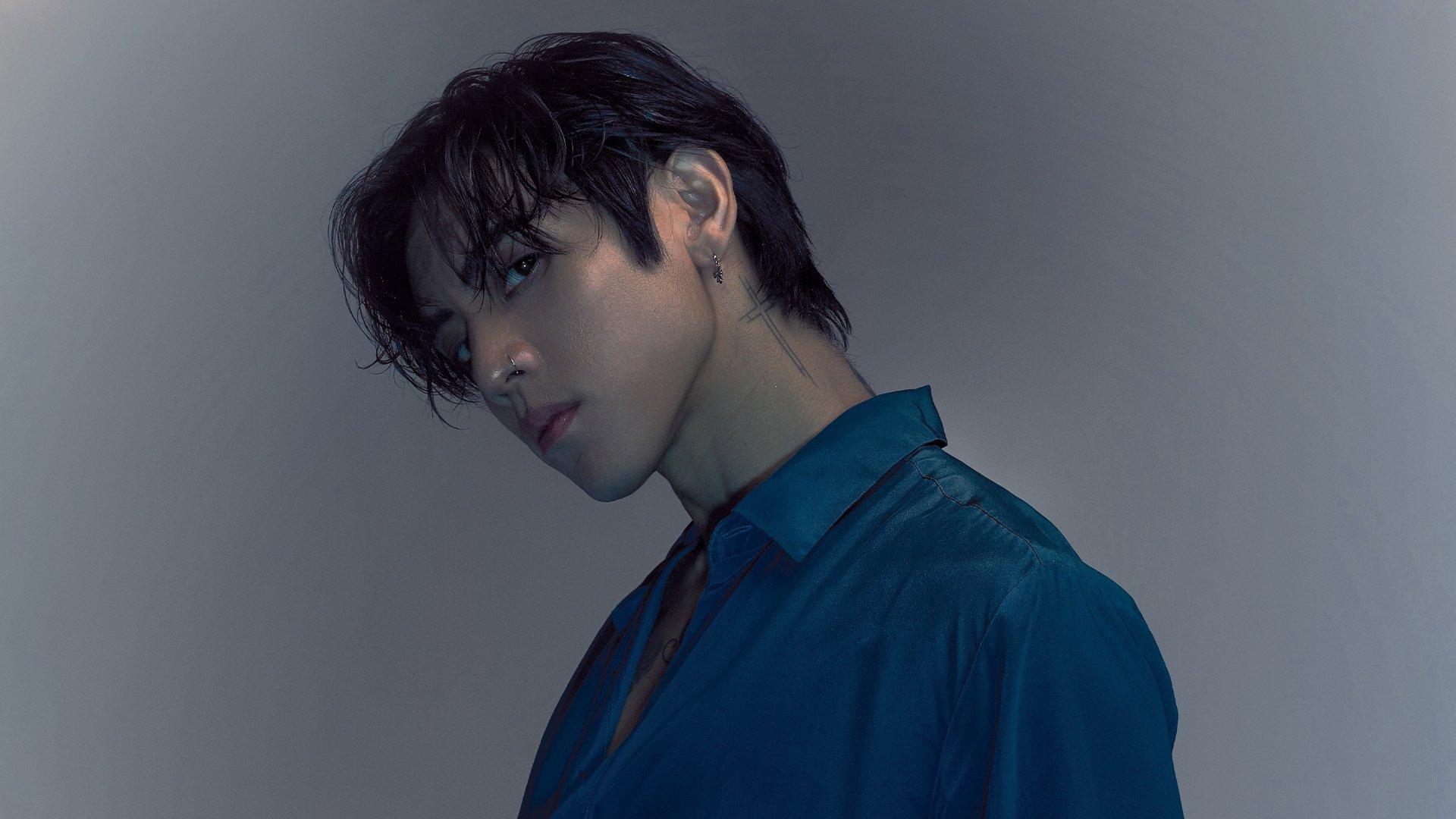Photo: Dane Clark

video
It Goes to 11: Noah Reid's Favorite Instrument Is A Custom-Made Wedding Gift With A Family Connection
Noah Reid shares the story behind his one-of-a-kind acoustic guitar, which was made expressly with him in mind.
Musician and actor Noah Reid's favorite instrument is an acoustic guitar that was custom-built by renowned luthier Linda Manzer, who's worked on guitars for the likes of Carlos Santana, Pat Metheny and Paul Simon. But the instrument's pedigree isn't the biggest thing that makes it special — it's also an important part of Reid's family history.
In this episode of It Goes to 11, Reid shares the deeply personal story behind his guitar, which was a wedding gift from his parents. Every detail behind the instrument was crafted with him in mind, beginning with the fact that it was made in 1987 — the year he was born.
"It's personalized on the headstock with a drawing by my dad," Reid explains, adding that Manzer also worked on the instrument with him and his playing style in mind. "She included a letter that said, 'I've heard you play in person, and I've tuned this, and the action is such that I think it will suit your playing style."
Reid's parents gave him the guitar as a gift the night before his wedding ceremony in 2020, along with a detailed case for the instrument. Having it before the wedding itself allowed the musician to make a special memory with his new guitar right away: performing for his new wife in front of their loved ones.
"Playing this guitar on my wedding day was just a crazy confluence of music and emotion and belonging and family," the singer — who Schitt's Creek fans may remember from his heart-melting performances as Patrick — says. "It was really everything. There's a sense of belonging with this instrument that feels unique and special. It's not just for an everyday occasion."
Press play on the video above to get to know Reid's special acoustic guitar for yourself, and keep checking back to GRAMMY.com for more episodes of It Goes to 11.

Photo: Ryusei Sabi
video
It Goes To 11: UMI Shows Off The Studio Gear That Streamlined Her Recording Process
Neo-soul singer UMI introduces her Apollo Twin X interface, the piece of musical gear that allows her to crank out her ideas "immediately."
Neo-soul singer UMI describes herself as a "multi-dimensional artist" whose ideas often come to her in the spur of the moment — and she "needs to get it out immediately."
Thanks to her favorite musical gear, the Apollo Twin X interface, she can bring her ideas to life on the go.
"Instead of going directly into your computer [to record], you can use something like this," UMI explains in this episode of It Goes to 11. "It helps to enhance the sound of what you're recording and makes the recording process easier."
Before she invested in her Apollo interface, she says she used to buy cheap ones for $50 or $100: "I thought I was getting the best experience, but then, I went to a studio. They had one of these. Ever since then, I've been like, 'This is my baby!'"
As a self-proclaimed "studio gear nerd," UMI exclaims that the Apollo Twin X isn't just a fancy part of her collection — it's changed her process altogether. "I don't have to book studio time anymore," she says. "I can do it all in my house!"
Press play on the video above to learn more about UMI's cherished Apollo Twin X interface, and check back to GRAMMY.com for more new episodes of It Goes to 11.

Photo: Mr. Earl
video
It Goes To 11: PsychoYP Reveals How An Equipment Explosion Led Him To Making "Crazy" Music
Nigerian rapper PsychoYP introduces his Aston Spirit condenser microphone that he found when he had to replace all of his equipment — which ended up being a blessing in disguise.
When a faulty extension box burst PsychoYP's equipment into flames, the Nigerian rapper was forced to repurchase everything from scratch. In doing some extra research on replacement items to prevent the accident from occurring again, he discovered a new favorite: his shiny Aston Spirit condenser microphone.
As PsychoYP recalls in this episode of It Goes to 11, once he purchased the Aston Spirit, "I knew I was about to start making some crazy music. The producer looked at me, and I looked at him and was like, 'I feel like we might be onto something.'"
The rapper says the Aston Spirit captures his voice perfectly, and even opened up a new side of his artistry: "It made me express myself more — open my mind a bit more while creating."
Despite the initial pain of losing his equipment, PsychoYP asserts that the accident resulted in a forever piece. "I feel like I'm going to have a catalog of microphones, but this will always be there," he says. "At least in my top two."
Press play on the video above to learn more about why PsychoYP loves his Aston Spirit condenser microphone, and remember to check back to GRAMMY.com for more new episodes of It Goes to 11.

Photo: Courtesy of J.Fla
video
It Goes To 11: Meet J.Fla's "Best Friend," Her Acoustic Taylor Guitar
South Korean singer J.Fla shares the history of her beloved Taylor guitar — and why she spends most of her time with it.
As a longtime fan of Taylor guitars, it was only a matter of time before South Korean singer J.Fla invested in one of her own. But when she finally purchased it, there was a small bump in the road as she waited for it to join her collection.
"This guitar arrived later than expected," she recounts in the newest episode of It Goes to 11. Feeling "nervous and excited" about the delayed delivery, J.Fla says she was "overjoyed" once it finally landed on her doorstep.
J.Fla now considers the guitar her best friend, "because I spend most of my time using this guitar." She plays it when she produces her music and makes melodies.
Besides the fact that the guitar works perfectly for J.Fla's small hands, the singer also loves its design, color, grip, and sound. "This guitar is the dream guitar I had always wished for," she beams.
Press play on the video above to learn more about J.Fla's bond with her acoustic Taylor guitar, and check back to GRAMMY.com for more new episodes of It Goes to 11.
9 Essential K-Pop/Western Collabs: From BTS And Megan Thee Stallion, To IVE And Saweetie

Photo: le3ay Studio
video
It Goes To 11: DPR IAN Unveils The Drumsticks That Inspired His Musical Dreams
Korean artist DPR IAN shares the story behind his Ahead 5A Drumsticks, the nostalgic piece of gear he discovered while watching Joey Jordison's Slipknot performance videos as a teenager.
Korean artist DPR IAN might have abandoned his drumming days, but that doesn't change the fact that it planted the roots for his artistry — which is why he still names his Ahead 5A drumsticks his favorite piece of musical gear.
"I remember my friend showing me a video on YouTube by Slipknot — Joey Jordison," the singer/songwriter, whose birth name is Christian Yu, recounts in the latest episode of It Goes to 11. "That was the first time I got absolutely shook."
Because of his hours of watching the band's videos, he could quickly recognize the tools they used on stage in any instrument shop. After convincing his mom to buy the same drumsticks as Jordison's, Yu drummed everywhere, including his car dashboard, which still has dents today.
Eventually, it was time to perform on the drums live. Having never been in front of an audience, the nerves were so high that he remembers he "blacked out" on stage as soon as the song started playing. "It was one of the most embarrassing moments of my life because I froze."
However, DPR IAN says it taught him a valuable lesson: not to become a drummer. But it also showed him that one negative experience shouldn't ruin his entire perspective on music.
"The greatest success is actually from a failure," he declares. "You have to learn how to be bad [at] things."
Press play on the video above to learn more about DPR IAN's history with the drums, and check back to GRAMMY.com for more new episodes of It Goes to 11.
9 Korean Alternative Artists To Know: Jiwoo, Zior Park, Huh & More
